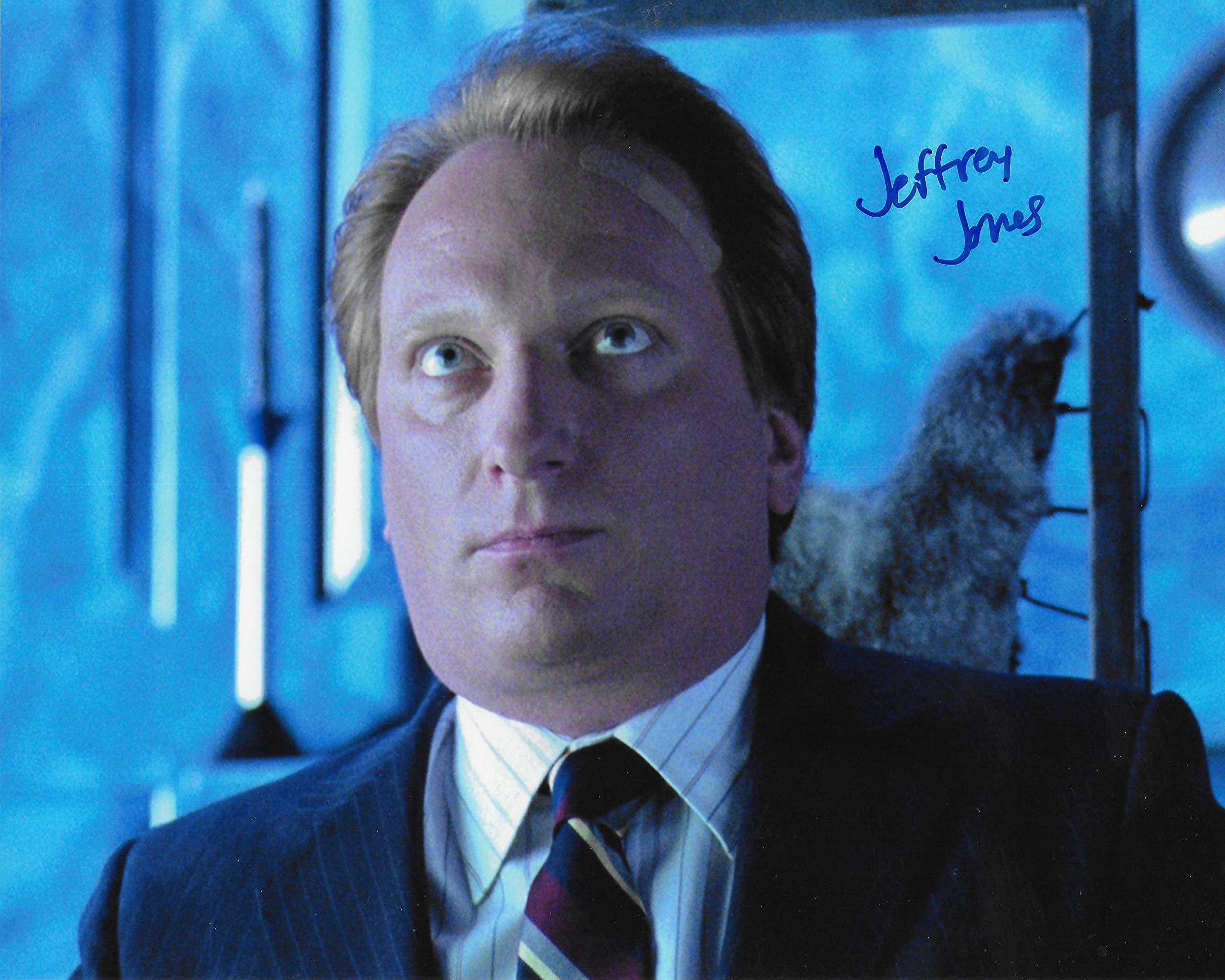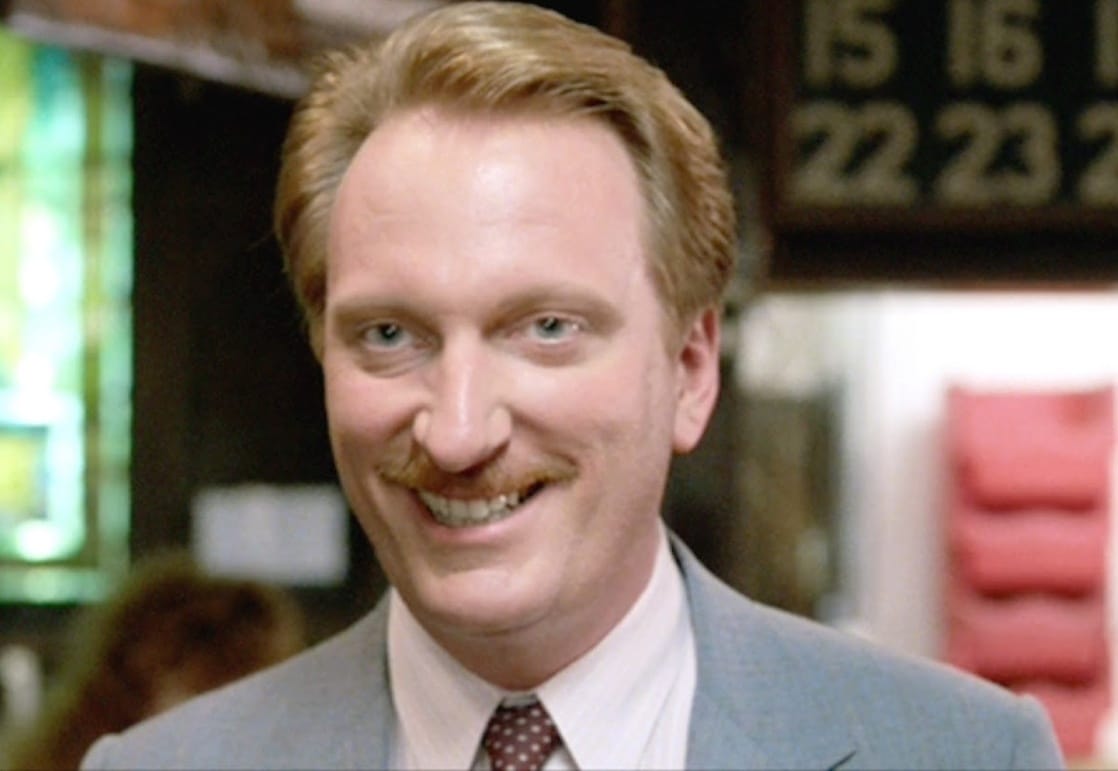Jeffrey Jones: Amadeus To Beetlejuice - A Deep Dive Into His Career & Life
Is it possible for an actor's legacy to be redefined by both critical acclaim and public controversy? For Jeffrey Duncan Jones, the answer is a resounding yes. His career, marked by iconic roles and memorable performances, has been irrevocably shaped by events that unfolded far from the silver screen, leading to a complex narrative of talent, consequence, and the enduring power of the past.
The name "Jeffrey Jones" conjures immediate images for film buffs: the uptight Principal Rooney in "Ferris Bueller's Day Off," the eccentric Charles Deetz in "Beetlejuice," and the imposing Emperor Joseph II in "Amadeus." These roles, among many others, established Jones as a character actor of remarkable versatility. He could embody both comedic and dramatic roles, often stealing scenes with his unique blend of intensity and eccentricity. His ability to portray nuanced characters, often with an underlying vulnerability, made him a favorite among directors and audiences alike. Yet, the trajectory of his career took an unexpected turn, bringing his personal life into sharp focus and altering the perception of his professional achievements. This article will delve into the life and career of Jeffrey Jones, examining the peaks and valleys of his journey and the lasting impact of his work, despite the circumstances that have shadowed his later years.
| Full Name: | Jeffrey Duncan Jones |
| Born: | September 28, 1946 |
| Birthplace: | Buffalo, New York, USA |
| Nationality: | American |
| Occupation: | Actor |
| Years Active: | 1970Present |
| Notable Roles: | Emperor Joseph II in Amadeus, Edward R. Rooney in Ferris Bueller's Day Off, Charles Deetz in Beetlejuice |
| Known for: | Versatile character actor, memorable performances |
| Controversy: | Conviction for a sex offense |
| Reference: | Wikipedia |
The early years of Jeffrey Duncan Jones were spent in Buffalo, New York, where he was born on September 28, 1946. His path to acting began with stage work, a common ground for many aspiring actors. He honed his craft, developing the skills that would later define his performances on screen. It was during this time that he began to build his foundation, understanding the nuances of character and the power of performance. His commitment to theatre provided a solid base for his transition into film and television, instilling the discipline and versatility that would later define his work.
Jones's career in film began in 1970 with a role in "The Revolutionary." However, it was the 1980s that truly catapulted him to fame. This decade became synonymous with his most iconic performances. His roles showcased his remarkable ability to inhabit diverse characters, bringing depth and complexity to each portrayal. His portrayal of Emperor Joseph II in "Amadeus" (1984) was a critical success. The role demanded a delicate balance of comedic timing and dramatic weight, and Jones delivered brilliantly. His Emperor was both pompous and insecure, a figure of authority rendered human by the actor's nuanced performance. This role was a major breakthrough and established him as a force to be reckoned with in the industry.
The role of Principal Edward R. Rooney in "Ferris Bueller's Day Off" (1986) further solidified his place in cinematic history. As the hilariously frustrated school administrator, Jones created a character that was both a villain and a source of comedic relief. His performance in the film made him an enduring icon of the 1980s, and the movie remains a beloved classic. The film capitalized on his ability to deliver perfect comedic timing, showcasing his physical and vocal talents. His Rooney was a figure of authority pushed to the brink by Ferris's antics, and the dynamic between the two characters remains a highlight of the film.
In 1988, Jones added another memorable character to his resume: Charles Deetz in Tim Burton's "Beetlejuice." As the patriarch of the Deetz family, Jones brought a unique blend of bewilderment and exasperation to the role, making him a perfect foil for the film's eccentric characters. His deadpan delivery and bewildered expressions made him an ideal fit for Burton's fantastical world. The film cemented Jones's reputation as a go-to character actor. Audiences loved the contrast between his grounded performance and the outrageous happenings around him. His role in "Beetlejuice" showcased Joness versatility and ability to thrive in a variety of genres.
Beyond these iconic roles, Jones appeared in a diverse range of films throughout the 1980s and 1990s. He consistently delivered memorable performances, whether playing a villain or a supporting character. His ability to portray a wide spectrum of characters highlighted his skill and adaptability. Each role he took on added another dimension to his already impressive range. From "The Hunt for Red October" (1990) to "The Devil's Advocate" (1997), Jones consistently proved his talent. His continued success in these roles reflected not only his talent but also his ability to adapt to the changing landscape of the film industry.
The success of Jones's career was further recognized by his presence on the stage. He has performed in plays like "The Elephant Man" and "Neil Simon's London Suite." These performances demonstrated his ability to captivate live audiences. While he made his mark on film, Jones never abandoned his roots in theatre. His continued involvement in stage productions served as a testament to his enduring passion for acting and his commitment to the craft. These performances allowed him to refine his technique and further explore the complexities of his craft.
However, despite his celebrated filmography, Jeffrey Jones's career was significantly impacted by a series of events that unfolded in the 2000s. These events cast a shadow over his professional achievements, significantly altering the perception of his work. His conviction on a sex offense in 2002 brought scrutiny to his personal life and led to a period of incarceration. This had a profound and lasting impact on his career and public image. The details of the conviction, and the resulting consequences, were widely reported in the media and deeply affected the publics perception of the actor.
The repercussions of these events were swift and far-reaching. Jones's roles in major productions became less frequent, and the public's view of him was irrevocably changed. This incident had far-reaching effects on Joness professional trajectory. The consequences he faced meant that he would be considered less for prominent roles, effectively altering the course of his career. His public image suffered, leading to a decline in the kind of opportunities he once enjoyed. His future was deeply affected by the outcome of the legal proceedings and the subsequent public reaction.
The absence of Jeffrey Jones from the anticipated "Beetlejuice 2" provides a tangible illustration of the lasting impact of these events. While the film franchise did not include his character, the film's creative decisions, in the way they addressed his character's absence, were subject to significant scrutiny. This reinforced the lasting impact of the events on his career and public perception. His absence from the sequel was a stark reminder of the lasting consequences of his past actions. This highlights the extent to which his legacy has been recontextualized by the challenges he has faced.
Despite the difficulties, Jeffrey Jones continued to act. He has appeared in various films and television series. Though his career has changed, he has continued to work, finding new ways to express his talent. These post-conviction roles have been a testament to his commitment to his craft and a way for him to engage with his audience. His continued presence in the industry, albeit in a different capacity, highlights his resilience and passion for acting.
Jeffrey Jones's story is a complex one. His professional life highlights a talented actor who left an indelible mark on cinema, with iconic performances that continue to entertain audiences. His personal life, however, took a different turn, leading to a profound shift in his career and public perception. The circumstances surrounding his conviction and subsequent actions cannot be overlooked. The actor's journey, marked by triumphs and tribulations, is a reminder of the interconnectedness of personal and professional lives. It also underscores how individual actions can shape both career trajectories and the lasting perception of an artist's work. Its a narrative that prompts reflection on talent, consequence, and the enduring power of memory.
The legacy of Jeffrey Jones is a complex one, as his body of work is simultaneously celebrated for its artistic value and tempered by the shadow of his personal controversies. His ability to deliver memorable performances and the range of characters he portrayed made him a celebrated actor. His talent is undeniable, and his contributions to film are a testament to his skill. Nonetheless, the events of his personal life, including his conviction for a sex offense, will continue to influence the way he is remembered. The audience, industry, and scholars will wrestle with these dual aspects. The actor's story invites a layered and nuanced analysis of an artist's entire contribution.



Detail Author:
- Name : Vallie Padberg Jr.
- Email : stracke.damian@gmail.com
- Birthdate : 2003-12-07
- Address : 8340 Tre Spring Apt. 324 Gerholdside, WY 62547
- Phone : 386.681.2411
- Company : Waelchi, Kilback and Wuckert
- Job : State
- Bio : Adipisci ut blanditiis exercitationem suscipit adipisci quod. Error porro ducimus voluptates esse et ut. Perspiciatis alias magnam dolorem saepe. Omnis veniam fuga sunt id autem a.